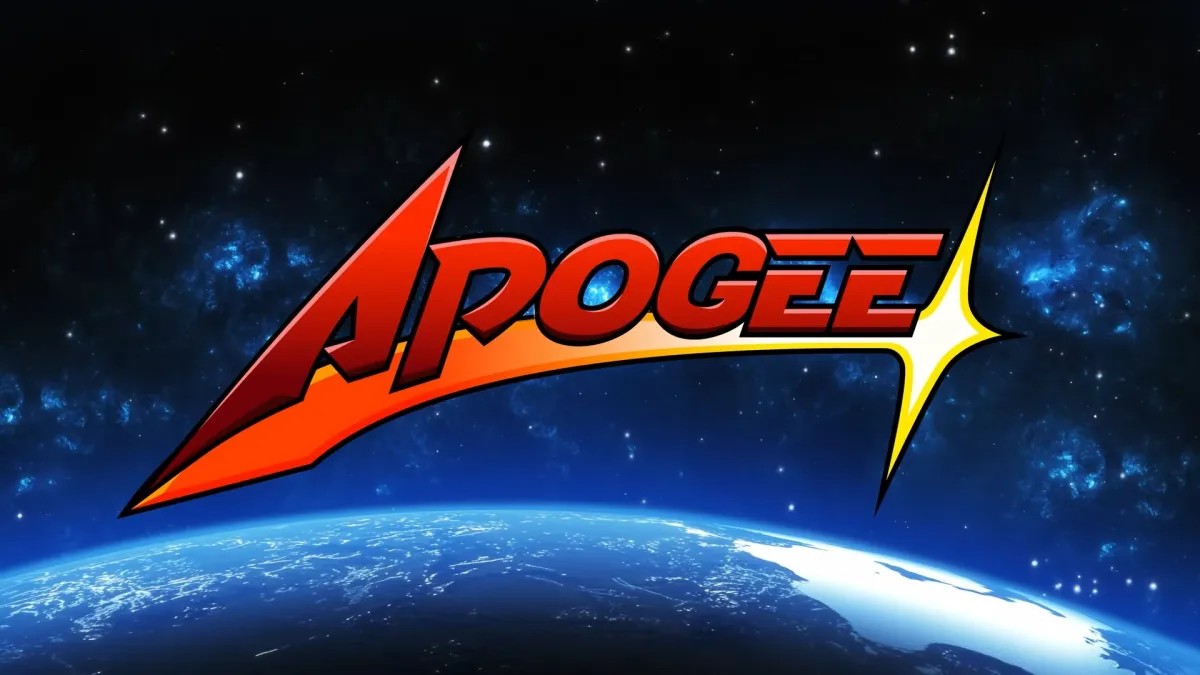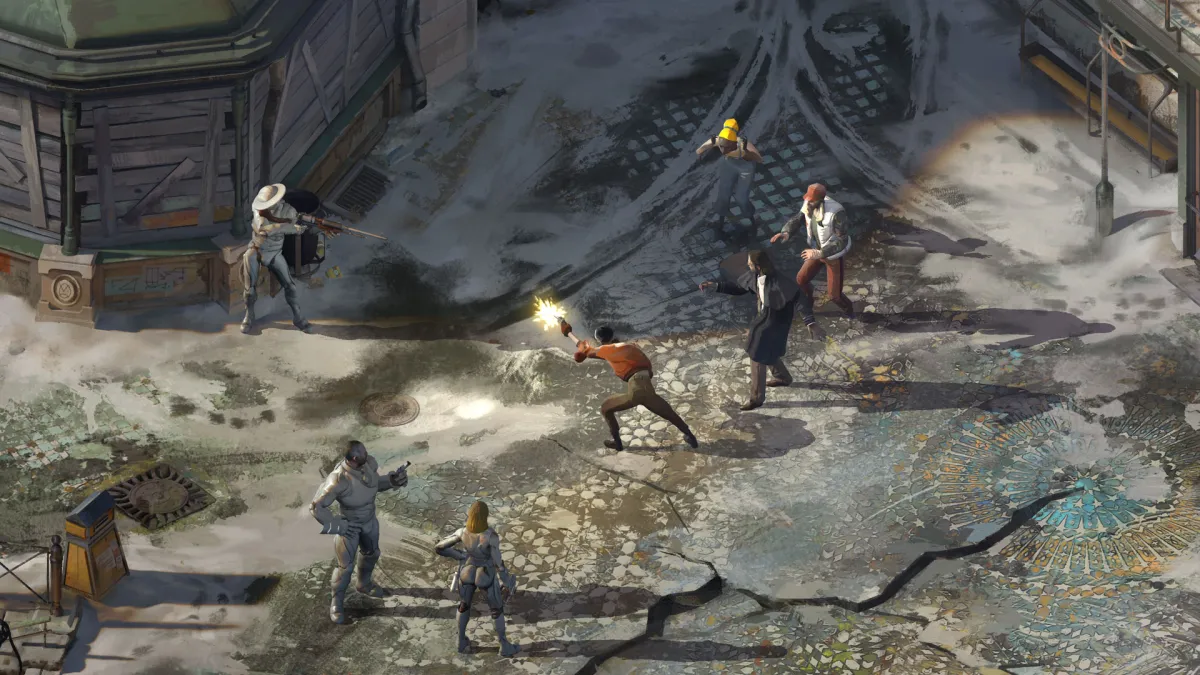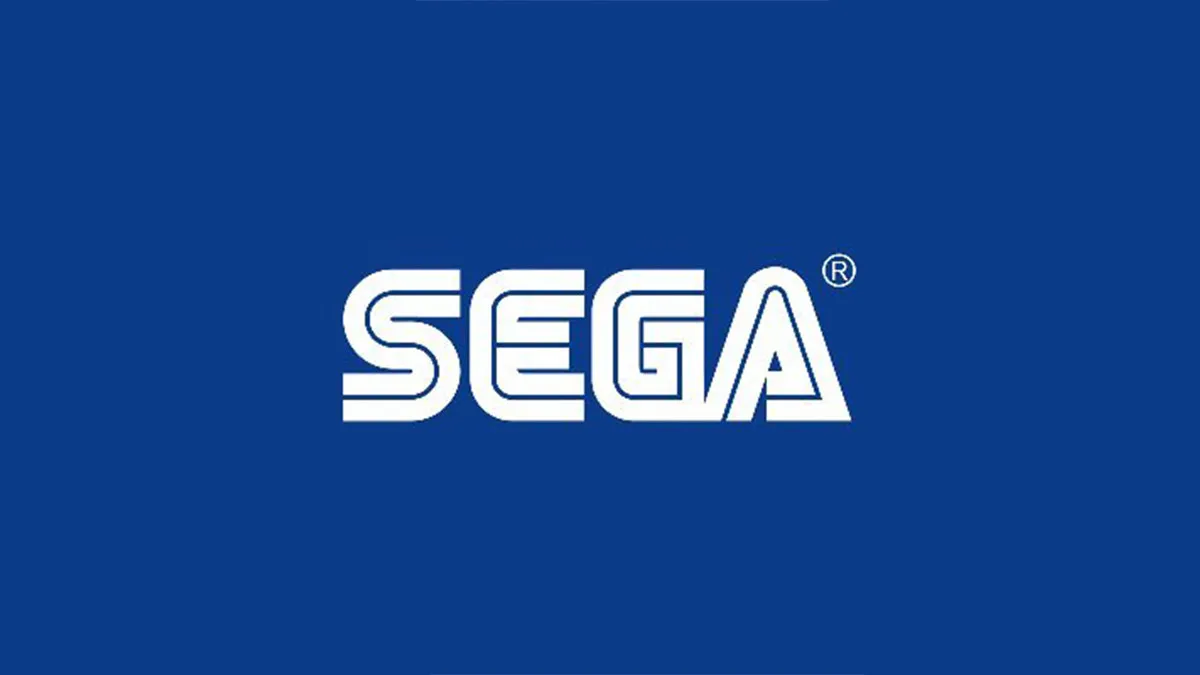Despite sort of being in a state of existential limbo for over 12 years due to license ownership issues, Apogee Entertainment remains one of the most recognizable names in PC gaming. After all, it helped launch some of gaming history’s biggest names such as id Software, Remedy Entertainment, and 3D Realms by publishing Wolfenstein 3D, Max Payne, and Duke Nukem 3D, respectively. Given their profiles now, it’s almost hard to believe that these companies were considered indie studios 30 years ago. As one of the first of the famous indie game publishers, Apogee is also credited with pioneering the shareware platform to popularize games through word of mouth long before the internet existed.
Now, like many other great classics, Apogee Entertainment is making a comeback and is looking to foster a new group of indie game developers. Its first officially announced project is Residual, developed by OrangePixel. Residual is a side-scrolling, sci-fi action game where players must build tools to survive on an alien world populated by procedurally generated malicious creatures.
“The indie market has really matured, grown, and exploded. It’s so different to how it was in the early ’90s when Apogee originally got its start,” said Scott Miller, Apogee and 3D Realms co-founder, speaking to PC Invasion.
Apogee’s back, baby!
Much of the credit for Apogee’s return goes to Miller’s longtime business partner Terry Nagy, who was able to acquire the remaining rights to the company’s name after only having partial rights since 2008. Nagy then called Miller and asked if he’d be interested in relaunching the indie game publisher. Miller immediately agreed.
Miller’s enthusiasm for independent games is apparent. Some of today’s biggest development companies started by innovating in their home basements and garages. It’s possible that Apogee could find great success with today’s indie studios, which may be comprised of a handful of people or even a solo developer working to put together a game in their spare time.
“I feel that the indie market is where a great deal of innovation is coming from now and in the future,” Miller explained. “We’re already seeing it. It’s because the big-budget AAA games are all about bigger and better. They can’t go out there and take huge risks with that kind of budget. It’s the indie market where we’re going to see the most innovation because it’s not that big of a risk for them.”
According to Miller, all the developers Apogee has approached so far have almost been honored to be contacted. The company helped develop and release a handful of games under the name Apogee Software over the past decade, but things have been otherwise low key. The Apogee name still has a great deal of staying power though, after working with so many well-known studios back in the day. Developers still remember growing up with games published by Apogee. Many were eager to sign up.
Although Miller admits that from a practical standpoint, Apogee Entertainment offers much of the same thing other publishers do, it benefits from Miller and Nagy’s background in game development.
“We can speak the language that these developers do and we can offer ideas that are totally legit – not stupid marketing stuff,” said Miller. “So far, everyone is embracing that.”
Miller went on to explain that Apogee isn’t interested in taking away anyone’s IP or controlling development as some other publishers might. Offering relatively high royalty rates is another strong incentive for developers to sign on. Other benefits include big box releases – which aren’t offered by many indie game publishers – in addition to services such as localization, quality assurance (QA), and porting games to different platforms. Apogee also helps developers put together trailers and other elements for crowdfunding campaigns, and the developers get to keep all of the money raised.
The Apogee developer community
The advantage that today’s creators have is easy access to a variety of tools to help streamline development, where teams were building technology from scratch 30 years ago. Miller said that Apogee has already signed on a number of projects that have been in development for several months. However, they look like they were put together by much larger teams. Generally speaking, indie developers are free to take chances, try out new gameplay ideas, and strengthen the ones that work.
“It’s almost Darwinian,” Miller continued. “For every 100 indie developers, maybe only a couple will break through with something truly original. What we want to do is try to find those golden nuggets that are out there and enable them to achieve all the goals that they want to by bringing in extra help, guidance, and giving them the funding that they need to pursue this full time or perhaps expand their team.”
To this end, developers are invited to experience the company’s community even before they’re signed on. That includes joining the Apogee developer HQ channel on Discord. There, they get to exchange ideas with other developers in addition to connecting with resources that help with various game elements such as voice work, music, sound, cover art illustrations, and more.
“Our main thing is to help developers make the best game they can because, in the end, it’s always about the game,” Miller said.
Building better worlds
Developed by OrangePixel (aka Pascal Bestebroer), Residual is expected to launch on Steam later this year as one of Apogee Entertainment’s debut titles. The game takes players to procedurally generated worlds where they must explore and survive by cobbling together equipment from salvaged parts. There are also mysteries related to an ancient alien civilization to uncover.
“I’m really fascinated by games that rely on a lot of systems; things like crafting and procedural generation,” Miller said while discussing what drew the company to Residual. Even the creatures and in-game lore change according to the type of generated planet you end up on. “I’m a fan of systems-based games because they have high replayability and they’re easy to expand upon with new systems.”
So, with that in mind, what makes for a signature Apogee published game?
“I think a lot of it will come down to polish,” answered Miller. “Another is that we’re not into making super-hard games. Although some super-hard games do very well, I’ve always wanted games to have a sense of fairness about them.”
To underscore this, Miller said that Apogee was one of the first publishers to make sure each of its games had a save system instead of relying on limited lives, which was a holdover from the arcade era. The idea at the time was to help ensure that players could get through levels and finish the game. It’s easy to take save games for granted now, but they were pretty rare in the ’90s. For instance, the first two Sonic games for the Sega Genesis famously had no save system despite the ramping difficulty.
Apogee is also looking to avoid overly complicated control schemes, like having to hit three buttons on the controller at once to do something. Other requirements include high levels of polish while adding some humor wherever possible.
Find resources, build tools, survive, uncover ruins from an ancient civilization, and maybe find a dopefish or two.
“We think that’s often a missing element in games, but it brings a lot to the table to have humorous lines and situations,” Miller said.
Easter eggs such as the Dopefish from the Commander Keen games, which later made it into Rise of the Triad, Deus Ex: Human Revolution, and Doom Eternal, will also be included. Players should also keep an eye out for clues for some sort of incredible temporary power-up hidden somewhere deep inside Apogee’s games.
Rise of a classic
Miller is separately involved with 3D Realms, which revealed in 2020 that it is working on Rise of the Triad Remastered. Apogee also approached the original authors and current license owners of several games that it published in the ’90s for permission to make remastered versions. It’s unlikely that 3D Realms will be involved with the development, but the two companies are in talks about supporting some sort of cross-promotional opportunities.
According to Miller, Apogee didn’t own any IP back in those days because it didn’t think that games would have much of a life beyond a year or two after release.
“Back in those days, it was all about better graphics, and it was a race to do better technology. So, things became out of date within a year or two,” he recalled. “It’s kind of weird now that we’ve come full circle to where people have grown up and they remember these old games and want to relive the experience.”
As expected, remastered games will feature smooth movement and control. Miller also mused about adding day and night cycles and improving the save game systems in addition to adjusting the difficulty levels for some classic games.
However, since Rise of the Triad is one of the games Apogee currently controls, it could have a bigger comeback. Although nothing is set in stone, and developing in-house games is still out of Apogee’s budget, Miller hopes that the company can someday develop all-new games set in the Rise of the Triad universe. But before that, he would want to change some aspects of the IP itself.
“It’s been an arcadey IP this whole time, and we want to treat it more seriously forward by developing the backstory and focusing on the characters,” Miller said. “We’re still going to have humor, but like Max Payne, you can have both.”








Published: May 26, 2021 07:30 pm